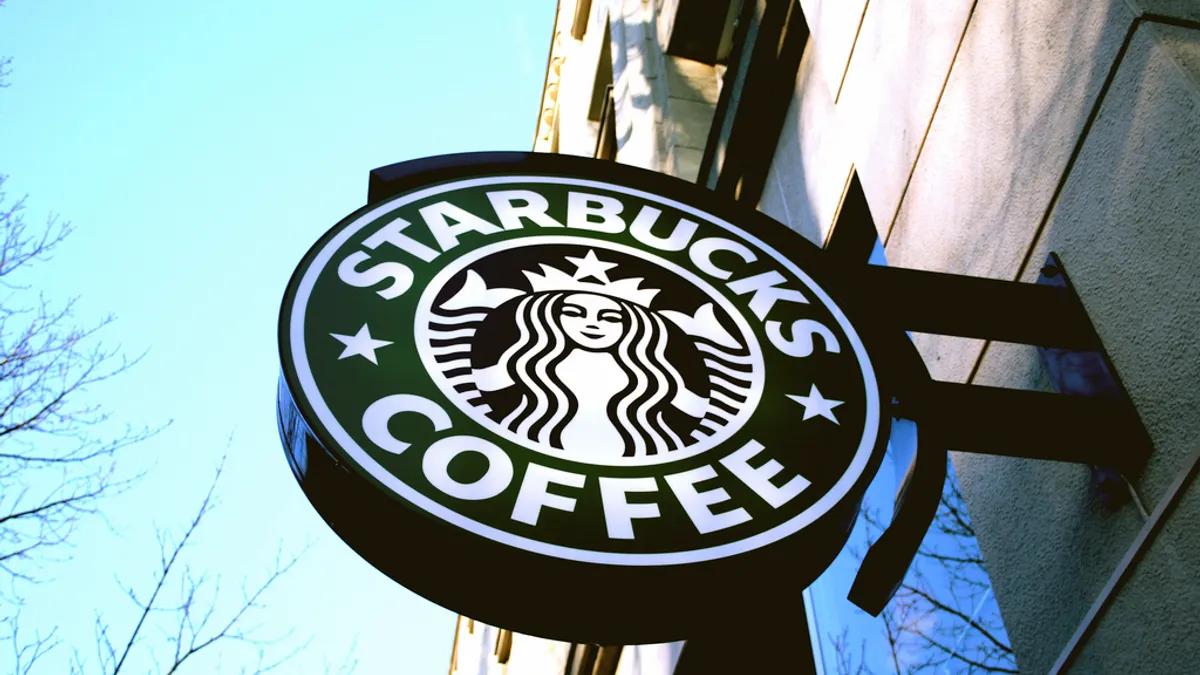Dive Brief:
- A new report assessing Starbucks' commitment to civil rights, equity and inclusion efforts concluded that the coffee store chain has made noteworthy progress, but that areas to improve remain. Starbucks went on an aggressive equity and diversity and inclusion (D&I) mission after a Philadelphia shop employee called the police on two African-American men for not making a purchase. The men, who were waiting for a third party for a meeting, were arrested. Their treatment turned into a high-profile, potentially damaging incident for the company, which closed all its 8,000 U.S. shops on April 17 for a half-day of D&I training.
- In the report, Starbucks — An Examination of Starbucks’ Commitment to Civil Rights, Equity, Diversity, and Inclusion, law firm Covington & Burling, alongside former U.S. Attorney General Eric Holder, organized its assessment into four categories: 1) Sustaining the 'third place,' in which Starbucks is a space outside of home and work where everyone feels welcome and is treated equally; 2) fostering an internal culture of equity and inclusion, which reflects Starbucks' commitment to hiring diverse candidates and a D&I leader to strengthen its equity mission; 3) community engagement, whereby Covington recommended that Starbucks step up its involvement in the community and deepen its ties with its stores, partners (employees) and communities; and 4) the importance of leadership, whereby Covington recommended that Starbucks instruct leaders in the business community, government and the public sector in the best practices for eliminating bias.
- Covington's general assessment of Starbucks' policies and procedures is that they were aligned with the coffee chain's mission and values and well-designed to promote equity and D&I. Holder stated in the report: "Even more impressive, Starbucks embarked on a journey to holistically examine all aspects of its operations to understand what more it could do to address implicit bias and promote equity and inclusion. This Report is part of these efforts."
Dive Insight:
Holder said in the report that the Philadelphia incident is a reminder that racial bias is a pervasive and destructive part of American society; the workplace, as an extension of society, often harbors or overlooks bias. Starbucks was not the only company to have to publicly come to terms with bias last year. Nordstrom's president had to personally apologize to three black teens who were falsely accused of stealing clothing in a St. Louis location not long after the Starbucks incident occurred.
These events brought bias training to the foreground — and Starbuck's very public, half-day closure was primed to be an example. While CEO Kevin Johnson's apology was widely considered an acceptable example of how to apologize for such events, the training met some backlash, especially in stores in Canada, which felt the training did not accurately describe the bias challenges they faced. Creating training that resonates with workers — especially bias training — can be challenging. But for managers and employees to be aware of their unconscious bias, employers must teach workers to be mindful of their decision-making and be aware of the emotions that guide their actions.
Companies may not want to wait for damaging publicity to occur before taking action to eliminate bias and moving forward with D&I initiatives. Creating a culture of respect, fairness and equity that sets expectations for behavior across an organization is key to an inclusive work environment and, in the case of retail, positive interaction with customers and the community.












